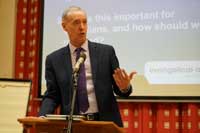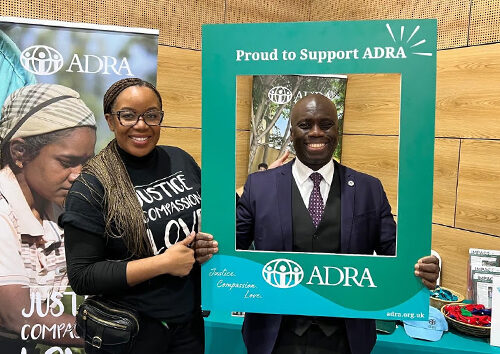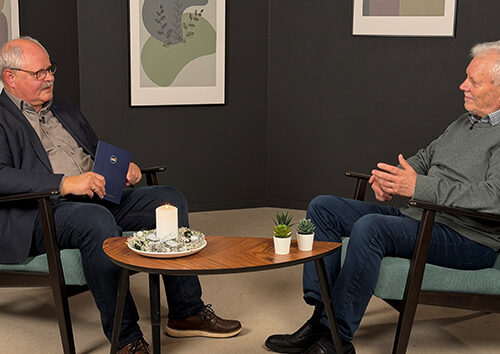8 March 2017 | Binfield, UK [Helen Pearson] The March Diversity Lecture at Newbold College on Tuesday, 7 March, focused on a subject dear to the hearts of Seventh-day Adventists – religious liberty. Dr David Landrum, Director of Advocacy at the Evangelical Alliance spoke about the development of contemporary ideas about free speech and the implications of those ideas for Christian life and witness in a secular society.

In the last ten years, Dr Landrum contended, various developments have affected the exercise of free speech. ‘Globalisation has continued at a bewildering pace raising questions of control, censorship and dominant discourses.’ Technological progress has changed the way we relate to and value other people. Social media have created the opportunity for an ‘echo chamber’ which distorts ideas and increases disenchantment with politics. The erosion of public discourse has followed. The language of binary opposition has developed. Freedom of speech is not used to discuss various aspects of an idea but rather to legitimise one point of view and demonise its opposite with hateful rhetoric.
So, Dr Landrum asked, “What is happening to our rights to free speech?” A sacred/secular divide is developing in which ‘faith talk’ is relegated to private discourse. At the same time, two myths are growing apace. The idea prevails that secularism is an unbiased ideology and that balanced, rational and morally neutral positions are possible. Alongside it grows the myth of progress – that things are moving onward and upward and to suggest otherwise is ‘heretical’. Alongside these two myths, human rights narratives are developing on hierarchical principles and when religious freedom clashes with other ‘protected’ rights such as sexual orientation, religious freedom has to give way. In the West, human rights discourse, Dr Landrum suggested, “has become idolatrous – a totalising creed.” The response of lawmakers to these developments and especially to the problems created by Islamist threats to security and public order is to legislate upon areas of human life where it had no previous access. The Law has become ‘a secular religion.’
Secularisation has further effects on society. It ‘weaponises’ human rights. This can be seen in state universities, traditionally centres for discussion and debate, now given the legal duty to monitor and control what is said on their campuses. Conflicts between the ‘offender’ and the ‘offended’ who thrive on controversy and notoriety lead to the passing of laws on ‘hate speech’ which is often very subjectively defined. Free speech, as traditionally defined, is a casualty in all these battles.
So Dr Landrum asked, “Why are these developments important for Christians and how should we respond?” Our first response should be to recognise a paradox: the secular state often approves of what Christians do but not what they believe. Government funds more Church projects as its own social care provision recedes. At the same time, the secular state objects to Christian beliefs – particularly about sexuality. Christians should respond to these attitudes by abandoning our traditional apathy about civil rights and religious freedom issues. We should be alert to the development of new criminal categories for extremists which would certainly have categorised Christian heroes like John Wesley, William Wilberforce, Rosa Parks, Martin Luther King and, of course, Jesus of Nazareth as ‘extremists’. We should be alert to the influence of the state on what can and cannot be taught to our children.

Moving into a more political arena, Dr Landrum suggested that all Christians have a responsibility to promote religious literacy and campaign for freedom – not just for themselves but for other religions and for secularists who offend and insult our faith. “We should speak up for speaking up for justice, not just-us!” he said.
Dr Landrum concluded with a reminder about witnessing which resonated with many of the Adventists in the audience. Religious freedom is like a muscle – if we don’t use it, we will lose it. 
A video of the presentation can be seen on the Newbold College of Higher Education Facebook page and will shortly be available on YouTube. [tedNEWS]
SEE ALSO:
February Diversity lecture: Moving beyond immature faith.
tedNEWS Staff: Victor Hulbert, editor; Esti Pujic, associate editor
119 St Peter’s Street, St Albans, Herts, AL1 3EY, England
E-mail: [email protected]
Website: www.ted.adventist.org
tedNEWS is an information bulletin issued by the communication department of the Seventh-day Adventist Church in the Trans-European Division.



